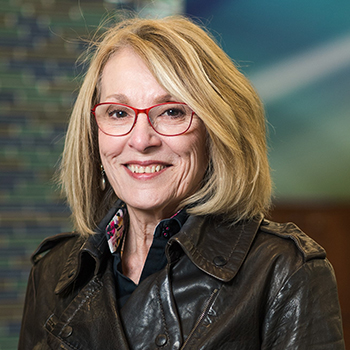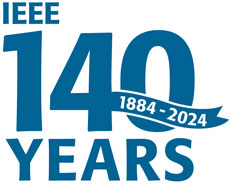
Panelist on the Innovation Panel and the 2023 IEEE Mildred Dresselhaus Medal Recipient
Melba Crawford’s pioneering work in the development and application of algorithms to analyze remote sensing data has resulted in vital new capabilities to address urgent problems in agriculture, geotechnical engineering, and environmental mapping and monitoring. For example, her contributions are helping to achieve more resilient methods of food production, which is a current pressing need. The effects of climate change—including higher temperatures, more frequent droughts, and spreading pests and diseases—coupled with the world population’s increasing demand for food necessitates rapid development of new heat-resilient, drought-tolerant, disease-resistant crops. One key to this effort is better remote sensing technologies like hyperspectral imaging, which are integral to the high-throughput phenotyping needed to speed selection of promising crop varieties. Crawford’s contributions in this area, from improving methods for analyzing high-resolution hyperspectral and LiDAR data to engaging with plant breeders on the ground, have brought real advances, as demonstrated by the integration of methods she developed in the phenomics pipeline, including their use in India and Africa. She was a member of the NASA EO-1 team, which sent the first successful U.S. civilian hyperspectral sensor into orbit, and her contributions to analysis of hyperspectral imagery resulted in improved understanding of changes in vegetation associated with anthropogenic inputs and natural disasters. Back on Earth, her work has been equally consequential. For instance, she provided vital decision-support in determining land-use policy for the Okavango Delta in Botswana. And methods she developed were used to demonstrate the impact of changes by invasive species to wetland vegetation that is critical to the survival of endangered native species. Crawford’s algorithms in active learning relative to classification of remote sensing data have also been adopted by the Korean Arctic survey for environmental monitoring. The reduction in the quantity of required ground-reference data achieved by Crawford’s methods is especially important in such remote areas. Our planet faces a rapidly growing array of challenges—and they can only be addressed if we have detailed and accurate information about them. Crawford’s contributions are critical to the utilization of that vital data.
An IEEE Life Member, Crawford is the Nancy Uridil and Francis Bossu Professor of Civil Engineering, Purdue University, West Lafayette, Indiana, USA.


